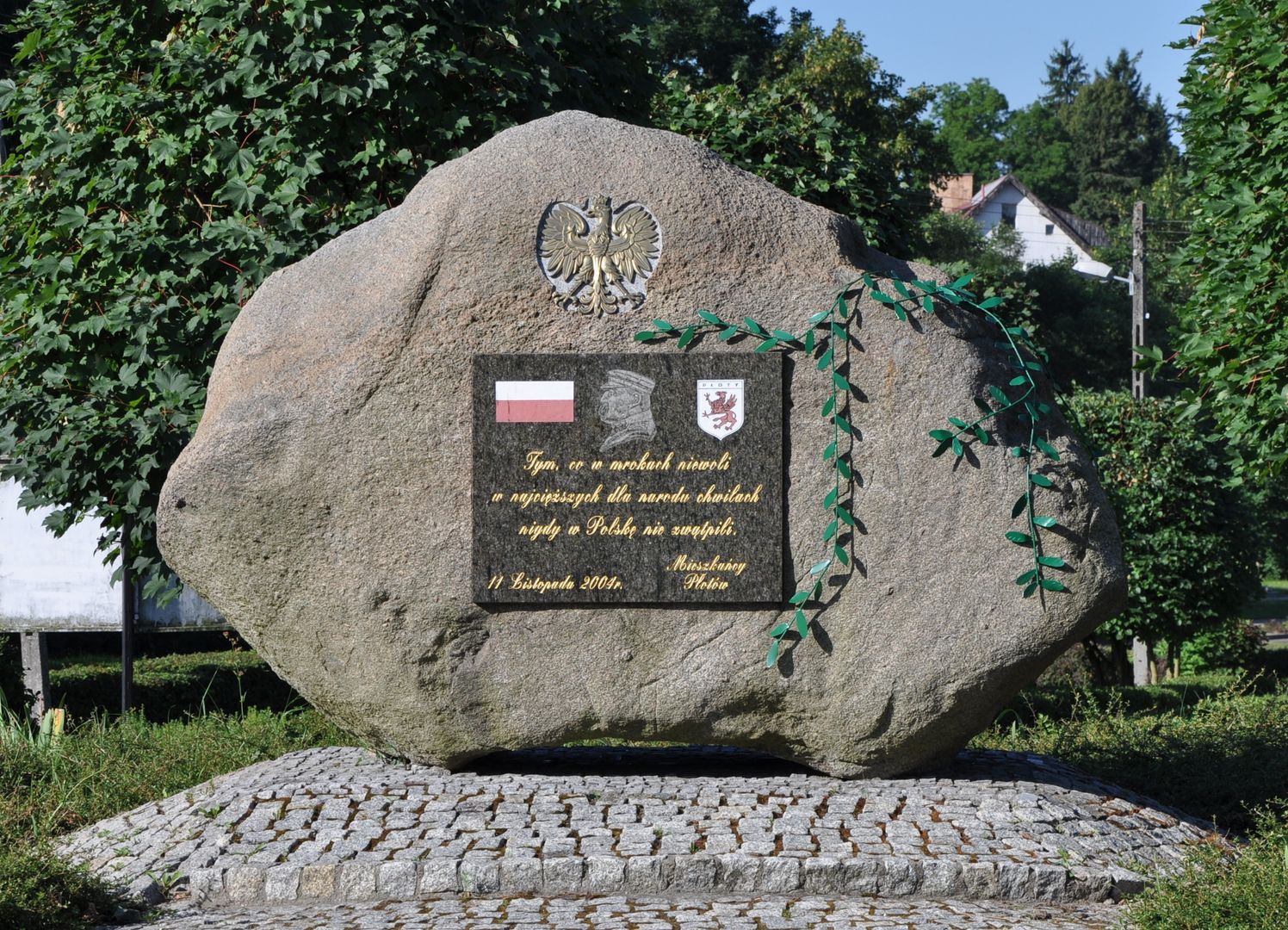Fences
6.19

Overview
Płoty, a town in northwestern Poland, is situated in the West Pomeranian Voivodeship on the Rega River. Historically significant, Płoty was the center of a Slavic opole (a medieval tribal association) in the 10th century and was granted town rights in 1277. The town repeatedly struggled with fires and epidemics, which significantly impacted its population and development. An important moment in Płoty's history was the end of World War II, when the town came under Polish administration, leading to an influx of settlers and a period of reconstruction. Płoty is home to several interesting historical monuments, including the Old Castle, which has 13th-century origins, served various functions over the centuries, and now houses the Municipal Public Library. The New Castle, built at the turn of the 16th and 17th centuries, is known for its Neoclassical architecture and houses valuable art collections. The Church of the Transfiguration, built in 1903, stands out for its Neo-Gothic style and beautiful stained-glass windows. As a cultural center, Płoty offers a variety of events organized by the Municipal Cultural Center, with a history dating back to medieval times. The town is also home to the football team "Polonia" Płoty and the Interschool Folk Sports Club "Mokasyn," which is progressively developing in team sports. Płoty is an important transportation hub with an extensive network of roads and railways. The surrounding area features nature reserves, highlighting the region's natural assets. The town's partnership with Niebüll reflects its international cooperation. It is also worth noting that Płoty hosted the 27th edition of the Pol'and'Rock Festival in 2021, which helped promote local culture and strengthened its position as a vibrant social and cultural center.
Location
2026 Wizytor | All Rights Reserved